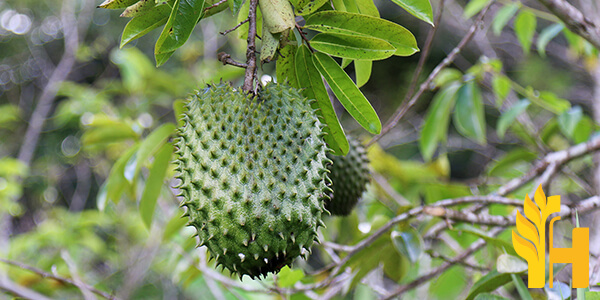Graviola price

Where to buy and sell Graviola, lowest (cheapest) and highest price.
check offers buy sell GraviolaToday price for GraviolaGraviola wholesale prices 2022
The Current commodity price of Graviola per kg, pound in the world in the global markets
graviola kilo
Price range: 5500 - 5500 COP / 1 kg | Market: Medellín Wholesale Markets | Date: 2025-06-13
graviola kilo
Price range: 5500 - 5500 COP / 1 kg | Market: Medellín Wholesale Markets | Date: 2025-06-11
graviola kilo
Price range: 5000 - 5000 COP / 1 kg | Market: Medellín Wholesale Markets | Date: 2025-06-06
graviola kilo
Price range: 5000 - 5000 COP / 1 kg | Market: Medellín Wholesale Markets | Date: 2025-06-04
graviola kilo
Price range: 5000 - 5000 COP / 1 kg | Market: Medellín Wholesale Markets | Date: 2025-05-31
graviola kilo
Price range: 5000 - 5000 COP / 1 kg | Market: Medellín Wholesale Markets | Date: 2025-05-28
graviola kilo
Price range: 5000 - 5000 COP / 1 kg | Market: Medellín Wholesale Markets | Date: 2025-05-24
graviola kilo
Price range: 5000 - 5000 COP / 1 kg | Market: Medellín Wholesale Markets | Date: 2025-05-21
graviola kilo
Price range: 5000 - 5000 COP / 1 kg | Market: Medellín Wholesale Markets | Date: 2025-05-17
graviola kilo
Price range: 5000 - 5000 COP / 1 kg | Market: Medellín Wholesale Markets | Date: 2025-05-14
graviola kilo
Price range: 6000 - 6000 COP / 1 kg | Market: Medellín Wholesale Markets | Date: 2025-05-10
graviola kilo
Price range: 5500 - 5500 COP / 1 kg | Market: Medellín Wholesale Markets | Date: 2025-05-07
graviola kilo
Price range: 5500 - 5500 COP / 1 kg | Market: Medellín Wholesale Markets | Date: 2025-05-03
Graviola
Graviola is a small tree that yields edible fruit. It has been used traditionally for parasite infections and contains anti-cancer, antibacterial, antiviral, antimicrobial chemicals. Parasitic worm infections have been treated with graviola for hundreds of years in South America. The roots bark, fruit seeds, fruit, leaf extracts have all shown anti-parasitic activity against roundworms.Graviola has been used to treat protozoan infections such as blastocystis hominis , giardia lamblia, leishmaniasis, and amoeba. It is also being studied for its chemotherapeutic uses against cancer. Chemicals in the graviola fruit cause apoptosis, or programmed cell death, in tumors and cancer cells. In normal cells, this process is regulated by proteins that suppress the enzyme called caspase 9. Caspases are activated when a cell receives a signal to die or becomes damaged. The binding of caspase 9 to these proteins causes them to break down, allowing the caspase to activate. In tumors and cancer cells, this regulation is blocked.
The body has ways of suppressing tumor formation at three different levels: carcinogen detoxification enzymes, tumor suppressors, and apoptosis. Carcinogens are by-products of normal metabolism or environmental toxins that can damage DNA. The damage results in mutations, which affect the regulation of apoptosis and tumor suppressors. Tumor suppressor genes are involved with repairing damaged DNA. When the damage goes unrepaired or new mutations occur, tumor suppressors, fail to function, causing tumors to grow out of control.
Various chemicals in graviola cause apoptosis by binding to proteins that block the activation of caspase 9. Caspase 9 then helps activate several other cancer-fighting proteins that trigger apoptosis in tumors or cancer cells, while leaving healthy cells unharmed. One study found that when human colon cancer cells were exposed to various stages of graviola fruit development, cell death was three times more likely in fully developed graviola fruit than in unripe, developing fruit.
Graviola extract has been shown to inhibit the Herpes simplex virus (HSV-1) at both early and late stages of HSV infection. It did not show any cytotoxicity against normal cells. The extract also stopped replication of varicella zoster virus, the virus that causes chickenpox, in patients with shingles Graviola extract has been shown to work against Toxoplasma gondii, one of the protozoal parasites that cause toxoplasmosis. It was most effective when the extract was used with synergistic compounds found in citrus, passion fruit, and papaya.
Graviola extract has also been used in the treatment of malaria but was not effective in preventing or killing the malaria parasite, Plasmodium falciparum. The extract did, however, show some effectiveness against other stages of the parasite's development.
In Peru and Brazil, graviola leaves have been used to treat amoebic dysentery, lombrical infection, and Leishmania braziliensis infections.
Global graviola production
According to the Food and Agriculture Organization of the United Nations, graviola production totaled 66,000 metric tons in 2013. The majority of this came from Brazil, which produced 60,000 metric tons. Other top producers include Peru (3,300 metric tons) and Colombia (2,700 metric tons). The demand for graviola has been growing in recent years as more people learn about the fruit's health benefits. In particular, graviola is being touted as a natural cancer treatment. This has led to increased production in countries like Brazil and Peru. The global market for graviola is currently worth an estimated $30 million. With the demand for natural cancer treatments expected to grow, this market is likely to grow in the coming years.Download our new
Husfarm App
Stay up to date with the current prieces of agricultural products all over the world.
Do you want to sell agricultural products?
Are you an Agricultural processor looking for high-quality products to buy?
Post an ad for FREE!
